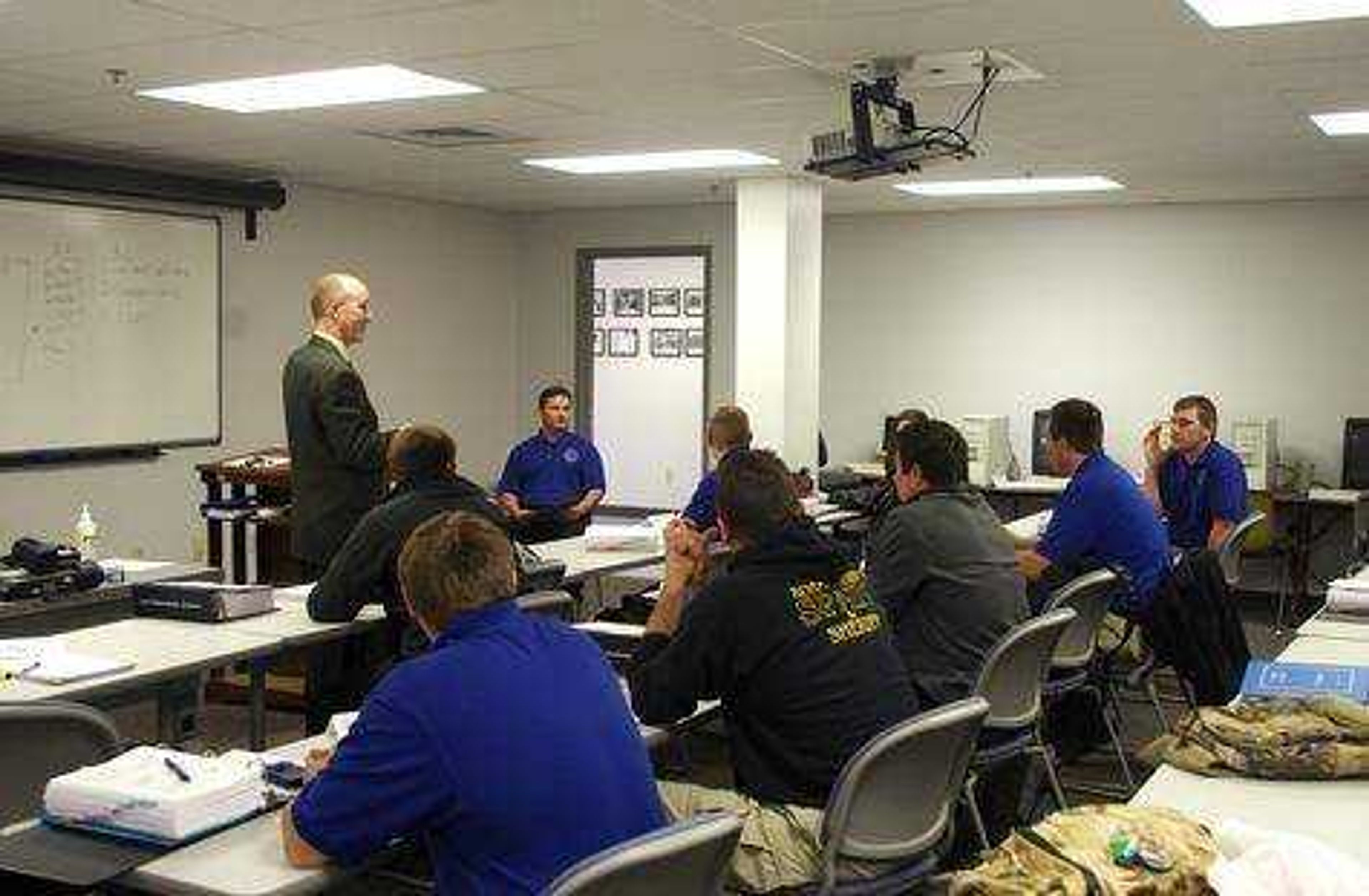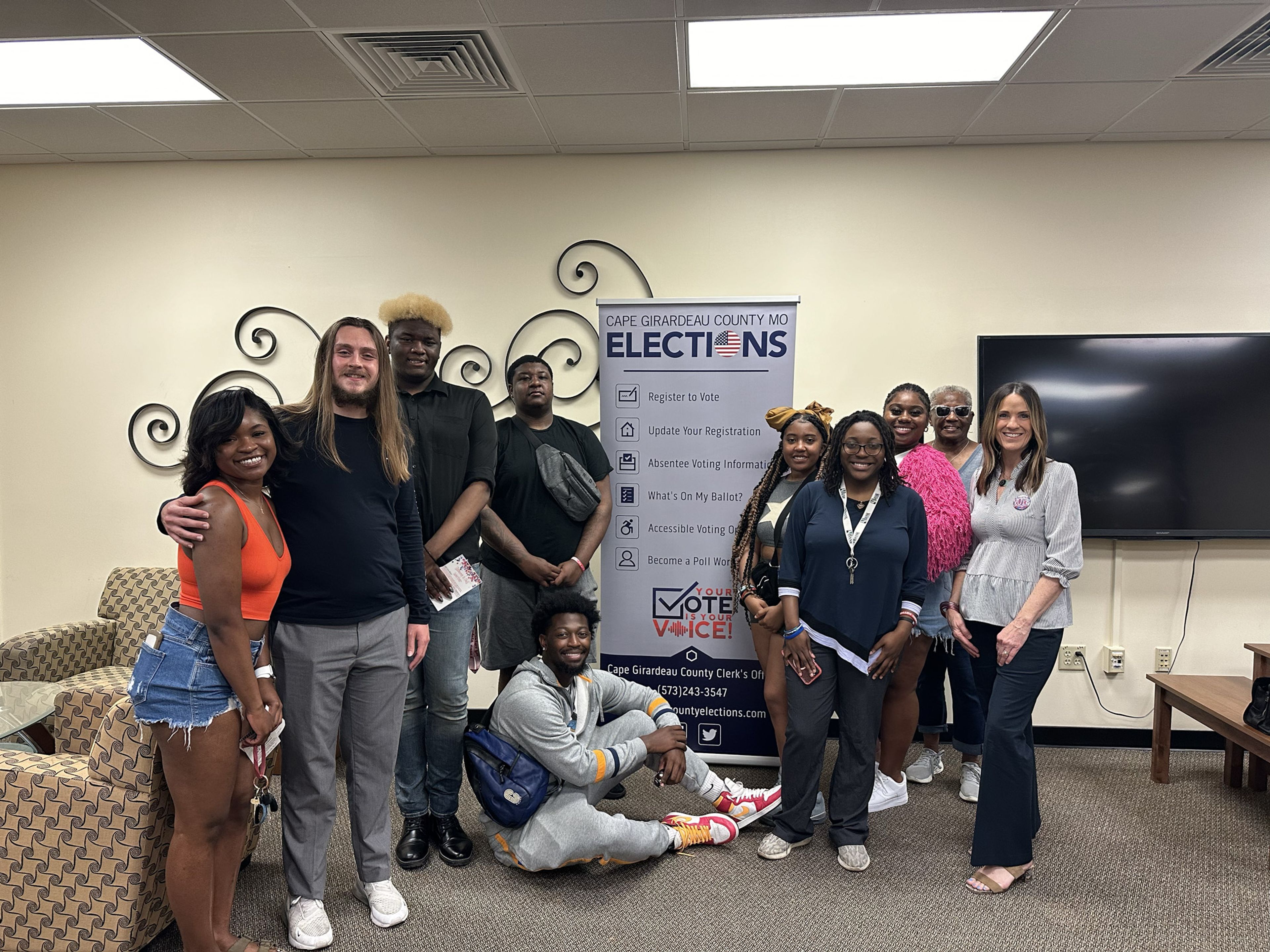Southeast Missouri State University has followed other universities and begun to offer college credit to students who enroll in the Law Enforcement Academy located at Southeast.
The students can take the classes in addition to earning full certification to become a law enforcement officer in the state of Missouri from the Peace Officers Standards and Training Commission through the Missouri Department of Public Safety.
"It's pretty exciting," said Carl Kinnison, director of the Law Enforcement Academy, full-time professor at Southeast and former chief of the Cape Girardeau police department. "I'm the one trying to make it happen."
Those studying to become law enforcement officers who are enrolled in the Law Enforcement Academy's 720-hour program will qualify for the 24 hours of credit.
The credit will go toward the student's completion of their 720 hours as well as earning their bachelor's degree from Southeast, if they have signed up for the courses.
There are four six-hour courses members will take, and they can take them during whichever semester the participant wants to take them over the course of fulfilling their 720 hours through the Academy.
The classes are LE199 Law Enforcement I, LE299 Law Enforcement II, LE 399 Law Enforcement III and LE499 Law Enforcement IV.
People who want to be law enforcement officers do not have to have a college degree, but they do have to attend a state-accredited academy.
According to Dr. Michael Brown, professor emeritus of the Criminal Justice department, in the past students with a degree would apply for a law enforcement officer job and then find they had to have certification from an academy to get that job. Now, students in the academy who also want to earn a bachelor's degree can apply the 24 hours of college credit toward the bachelor's degree and their hours at the law enforcement academy.
Students who want to enroll in the classes would have to first enroll in the law enforcement academy and then sign up for the four classes through the Southeast banner.
The academy runs for 18 weeks in the spring, from January to May.
The classes will be taught face-to-face in classrooms, as mandated by Missouri's laws regarding basic training classes.
These aren't typical college classes, Kinnison said.
Kinnison said the four classes would appeal to people who want to work in municipalities, for example.
"We've got four students expressing an interest in the classes already," Kinnison said.
Kinnison said the classes should be taught starting in January 2013.
Other schools have seen success with similar programs.
The University of Missouri has an academy but not a specific criminal justice program. Students can take similar courses through other universities like Columbia College, but it counts toward their hours at the academy at the University of Missouri.
"From our experience this is a valuable opportunity for students who are looking to go into law enforcement," said John Worden, the director of the Law Enforcement Training Institute at the University of Missouri.
"This is both time and money savings for the student," Worden said.
Southeast students will take the 24 hours of college credit as electives, so it will not count toward any core requirements at Southeast.
Drury University in Springfield, Mo., offers students 18 hours of college credit toward the required 700 hours at their law enforcement academy. The credits are the core classes for the Associate of Science in Law Enforcement, as opposed to elective courses only, according to Tony Bowers, the director of the Law Enforcement Academy at Drury.
"We are starting to see more graduates of the academy continue their process toward the AS [Associate of Science] and the BS [Bachelor of Science] degree," Bowers said.
Brown was instrumental in the process that began two years ago.
He helped get the four classes to qualify for college credit to make it easier for students to graduate with their degree while attending the academy, instead of doing so much of it separately.
Brown believes there are four things students can do to have a better chance of securing a job.
Students should earn a criminal justice degree so they have the credentials, get an internship in criminal justice so they can get hands-on experience, have a clean background to pass the background check and attend a state accredited academy to be a licensed officer.
"I can't stress the importance of keeping your nose clean and passing that background check," Brown said.
Students should pick the agency they want and identify requirements for that agency and acquire the skills necessary to get the job, Brown said, which "will provide students with the attitude and skills necessary to be successful."
People who are interested in signing up for the law enforcement academy or the classes can contact Kinnison at ckinnison@semo.edu.





